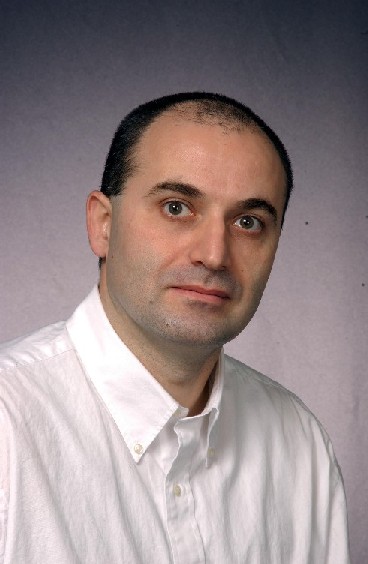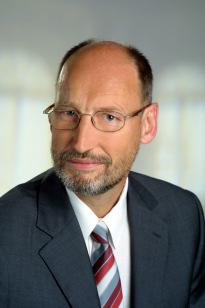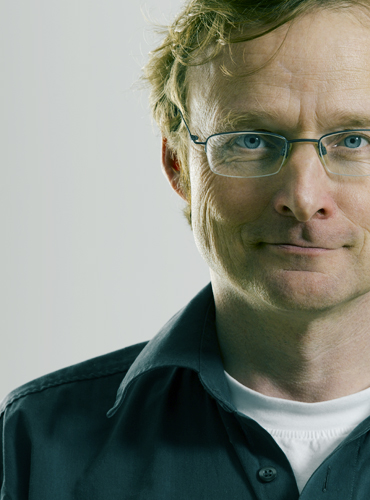Invited Speakers
We proudly announce these three invited speakers:
| Speaker | Time | Title |
|---|---|---|
| Levent Tunçel | Monday 15th 9:30-10:30 |
Semidefinite Programming and Lift-and-Project Methods in Combinatorial Optimization |
| Thomas Breitling | Tuesday 16th 9:00-10:00 |
The Challenges of Multidisciplinary Optimization in an Automotive Development Process |
| Arndt von Haeseler | Wednesday 17th 9:00-10:00 |
Phylogenetic Tree Reconstruction: A Challenging Optimization Problem from Nature. |
Semidefinite Programming and Lift-and-Project Methods in Combinatorial Optimization

Levent Tunçel
Department of Combinatorics & Optimization
Faculty of Mathematics
University of Waterloo, Canada
Faculty of Mathematics
University of Waterloo, Canada
Monday 15th, 9:30-10:30
Abstract
Semidefinite programming (SDP) is one of the most active research areas in optimization where the variables are represented by symmetric matrices some of which are required to be positive semidefinite. This framework ends up being a powerful generalization of linear programming problems. Lift-and-project methods provide universal ways of applying SDP techniques to combinatorial optimization problems. I will go over the theory of these methods first. Then, I will turn to their performance on various combinatorial optimization problems with a special focus on the maximum weight stable set problem. I will conclude the talk with a very brief discussion of generalizations of these methods to deal with optimization of polynomials over semi-algebraic sets.Biosketch
Levent Tunçel is currently a Professor in the Department of Combinatorics and Optimization, Faculty of Mathematics, University of Waterloo, Canada. He received a B.Sc. in Industrial Engineering from Dokuz Eylül University and a M.Sc. in Industrial Engineering from the Middle East Technical University in Turkey. Then he received a M.S. and a Ph.D. in Operations Research from Cornell University in the USA. He served as an associate editor or guest editor for Operations Research, Mathematical Programming and Transactions on Operational Research. Currently, he is serving on the editorial board of SIAM Journal on Optimization. Tunçel's research program is in mathematical optimization and mathematics of operations research, it aims at understanding the structure of optimization problems and designing provably efficient methods for solving them.The Challenges of Multidisciplinary Optimization in an Automotive Development Process

Thomas Breitling
Daimler AG
Sindelfingen, Germany
Sindelfingen, Germany
Tuesday 16th, 9:00-10:00
Abstract
Many methods in the scope of the PPSN conference are state of the art and are already available in the optimization kernels of commercial tools. The evolutionary principles adapted by these methods, however, were also applied to the algorithms themselves: In the beginnings of Evolutionary Computation, many variants emerged and competed with already established ones, but only a few prevailed and are considered as mainstream nowadays. Now the selection pressure starts rising again: With the increasing complexity of products and product development processes, there is a demand for methods which allow the efficient and reliable validation of product designs regarding a great number of possibly conflicting requirements. The automation of these validation processes exhibits new challenges for optimization tools which are summarized under the term of Multidisciplinary Optimization. By the example of the Daimler passenger car development, the talks describes the special requirements optimization methods have to fulfill in the near future, especially the limited number of single design verifications due to the long simulation times of certain disciplines.Biosketch
Thomas Breitling received a degree in Chemistry and Biology at the Eberhard-Karls-University of Tübingen, Germany. Then he received his diploma and PhD in General Mechanical Engineering at the University of Karlsruhe, Germany. He worked in different departments for Daimler AG, Mercedes-Benz Cars in Sindelfingen.At the moment he is the head of Active Safety, Vehicle Dynamics and Energy Management at Mercedes-Benz Cars Development at Daimler AG in Sindelfingen, Germany. In 2002 he became Honorary Professor at Karlsruhe University, Germany.
Phylogenetic Tree Reconstruction:
A Challenging Optimization Problem from Nature.

Arndt von Haeseler
Center for Integrative Bioinformatics Vienna (CIBIV)
Max F. Perutz Laboratories (MFPL)
Vienna, Austria
Max F. Perutz Laboratories (MFPL)
Vienna, Austria
